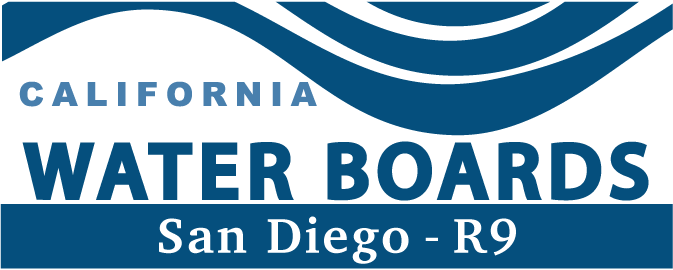San Diego Region - Basin Plan Amendment to Incorporate Implementation Provisions for Indicator Bacteria Water Quality Objectives to Account for Loading from Natural Uncontrollable Sources Within the Context of a Total Maximum Daily Load - Basin Plan Issue No. 7
Basin Plan Amendment Adopted by Regional Board on May 14, 2008 Approved by State Board on March 17, 2009, by OAL on June 25, 2009, and by EPA on September 16, 2009
On May 14, 2008, the San Diego Water Board adopted a Basin Plan amendment to incorporate implementation provisions for indicator bacteria water quality objectives to account for loading from natural uncontrollable sources within the context of a total maximum daily load. The Basin Plan amendment process is authorized under section 13240 of the Water Code. The Basin Plan amendment is a project subject to the California Environmental Quality Act (CEQA) and the San Diego Water Board is the lead agency. The Basin Plan Amendment was approved by the State Board on March 17, 2009, by the OAL on June 25, 2009, and by the EPA on September 16, 2009. The Basin Plan Amendment is fully approved and in effect, but not yet published in the Basin Plan.Background
This Basin Plan amendment authorizes use of a reference system and antidegradation approach (RSAA) or natural sources exclusion approach (NSEA) during implementation of indicator bacteria water quality objectives within the context of a TMDL. Implementation of indicator bacteria water quality objectives using the RSAA requires control of indicator bacteria from anthropogenic sources so that the bacteriological water quality that is achieved is consistent with that of a reference system. A reference system is a watershed and the beach to which the watershed discharges that is minimally impacted by anthropogenic activities that can affect indicator bacterial densities in the water body. The RSAA also requires that no degradation of existing bacteriological water quality in the targeted waterbody occurs when the existing bacteriological water quality is better than that of a reference system waterbody. Using the NSEA, implementation of indicator bacteria water quality objectives requires control of indicator bacteria from all anthropogenic sources. But rather than requiring achievement of reference system bacteria levels, the NSEA requires dischargers to demonstrate that all anthropogenic sources have in fact been controlled and that the residual indicator bacteria densities do not pose a human health risk.Use of the RSAA or NSEA during implementation of indicator bacteria water quality objectives is needed because data show that exceedances of indicator bacteria water quality objectives frequently occur at beaches or in creeks that receive runoff from predominately undeveloped watersheds. This indicates that natural uncontrollable sources of indicator bacteria (e.g., wildlife feces, bacterial resuspension from disturbed sediment, regrowth on the beach wrack, etc.) can cause exceedances of indicator bacteria water quality objectives on their own, without contributions from anthropogenic sources. Since control of natural sources is likely infeasible, possibly detrimental to important beneficial uses, and could impact other resources during construction of treatment works, these implementation provisions in the Basin Plan authorize the San Diego Water Board to allow exceedances of indicator bacteria water quality objectives within a bacteria TMDL.
Final Technical Report & Appendices Now Available
The Final Technical Report and Appendices are dated May 14, 2008. For a summary overview of these provisions, please see the Executive Summary in the Final Technical Report. To download the Final Technical Report and Appendices, please see Public Documents below.
Contact Information
You may also obtain information at your convenience from our Website or by appointment at the San Diego Water Board office. Any questions or comments regarding this Basin Plan amendment may be sent to Deborah Woodward, Environmental Scientist, at 619-521-3353, or Deborah.Woodward@waterboards.ca.gov.
Public Documents
(All documents are PDF format unless otherwise noted)
- Resolution No. R9-2008-0028 and Attachment A, Basin Plan Amendment (May 14, 2008)
- Technical Report (May 14, 2008)
- Appendices
- Appendix 1 – Environmental Analysis and Checklist
- Appendix 2 – Resolution No. R9-2008-0028 and Basin Plan Amendment
- Appendix 3 – Peer Review Comments and Responses
- Workshop and CEQA Scoping Meeting Notice (January 23, 2006)
- Powerpoint Presentation of Workshop and CEQA Scoping Meeting (March 13, 2006)
- Notice of Public Hearing and Notice of Filing (February 29, 2008)



